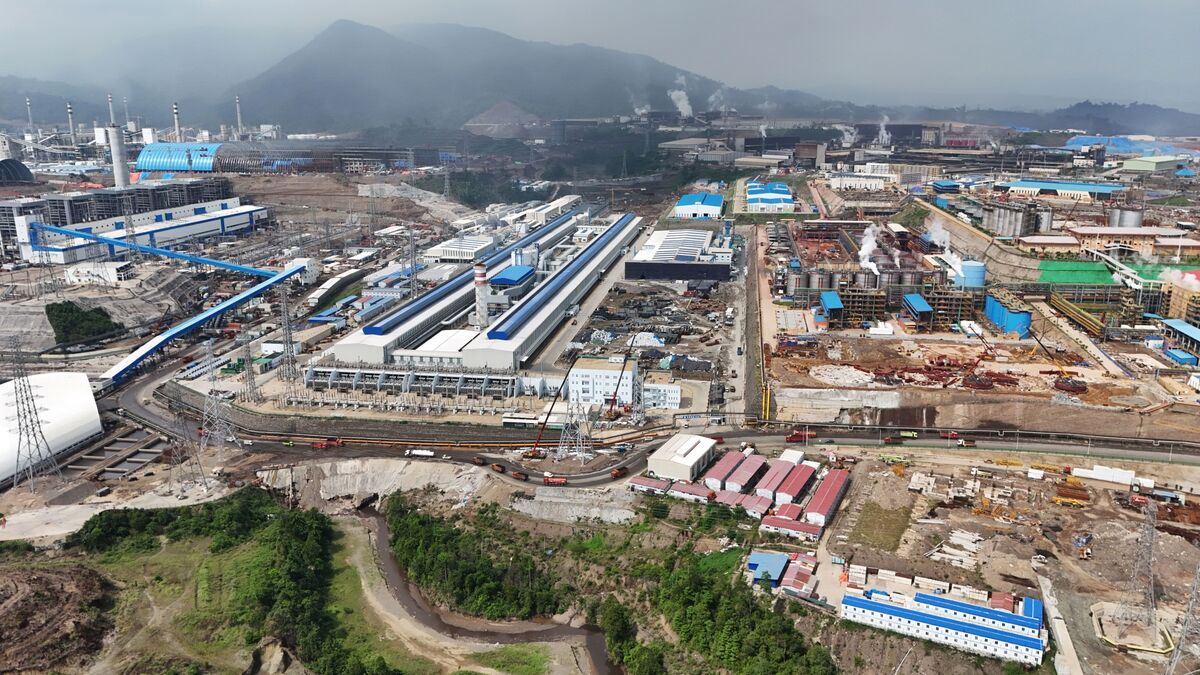Deadly Landslide Threatens Indonesia's Nickel Supply
Indonesia, a global powerhouse in nickel production, faces a significant threat to its supply chain: deadly landslides. Recent catastrophic events highlight the precarious balance between resource extraction and environmental safety, raising concerns for global nickel markets and the Indonesian economy. This article delves into the issue, exploring its causes, consequences, and potential solutions.
The Devastating Impact of Landslides on Nickel Mining
The Indonesian archipelago's geology, characterized by volcanic activity and heavy rainfall, makes it prone to landslides. These events are amplified by aggressive nickel mining practices, often conducted on steep slopes with insufficient environmental safeguards. The consequences are dire:
- Loss of Life: Landslides claim lives, causing immense human suffering and leaving communities devastated. The immediate impact on families and the broader community is devastating, often requiring significant humanitarian aid and long-term recovery efforts.
- Disrupted Production: Mining operations are frequently halted following landslides, leading to disruptions in nickel supply chains. This has significant global repercussions, affecting various industries reliant on nickel, including stainless steel production and electric vehicle battery manufacturing.
- Environmental Damage: Landslides cause widespread environmental damage, polluting waterways and destroying ecosystems. The impact on biodiversity and local communities who rely on these ecosystems for sustenance is profound. Soil erosion and water contamination further complicate the recovery process.
- Economic Instability: Disruptions to nickel production translate to economic instability for Indonesia, impacting export earnings and potentially leading to job losses within the mining sector and related industries.
Understanding the Underlying Causes
Several factors contribute to the increased landslide risk in Indonesia's nickel mining regions:
- Deforestation: Clearing forests for mining exposes slopes to erosion, making them more vulnerable to landslides. The removal of tree roots, which help stabilize soil, significantly increases the risk.
- Unsustainable Mining Practices: Poorly planned and managed mining operations, including inadequate slope stabilization and failure to adhere to safety regulations, exacerbate the risk. Often, the pursuit of rapid profit overrides environmental considerations.
- Heavy Rainfall: Indonesia's tropical climate experiences intense rainfall, saturating the soil and reducing its stability. This makes slopes more susceptible to collapse, especially in areas where deforestation or poor mining practices have weakened the soil structure.
- Geological Instability: The inherent geological instability of certain regions in Indonesia, particularly those with volcanic activity, contributes to a higher inherent risk of landslides.
The Global Impact of Indonesia's Nickel Supply Disruption
Indonesia's position as a dominant player in the global nickel market means that disruptions to its supply chain have far-reaching consequences. The impact is felt across various industries:
- Stainless Steel Production: Nickel is a crucial component in stainless steel manufacturing. Supply disruptions can lead to price increases and production delays within this vital sector.
- Electric Vehicle (EV) Battery Manufacturing: The burgeoning EV industry relies heavily on nickel for batteries. Reduced nickel supply can hinder the growth of this crucial sector in the transition to cleaner energy.
- Global Commodity Markets: Disruptions to Indonesian nickel production can create volatility in global commodity markets, potentially impacting other related industries and economies.
Moving Forward: Mitigating the Risk
Addressing the landslide threat requires a multi-pronged approach:
- Strengthening Environmental Regulations: Indonesia needs to enforce stricter environmental regulations within the mining industry, ensuring that operations adhere to best practices for slope stabilization and environmental protection.
- Investing in Sustainable Mining Practices: Adopting sustainable mining techniques, including responsible land management and reforestation efforts, is crucial in minimizing landslide risk.
- Improved Early Warning Systems: Developing and implementing effective early warning systems for landslides can help minimize casualties and mitigate the impact on mining operations.
- Community Engagement: Engaging local communities in risk assessment and mitigation strategies is vital to ensure their safety and well-being. Their traditional knowledge and understanding of the local environment can be invaluable.
- International Collaboration: International cooperation and knowledge sharing can help Indonesia implement best practices in landslide prevention and management.
Conclusion:
The threat of deadly landslides to Indonesia's nickel supply is a serious challenge with significant global implications. Addressing this issue requires a concerted effort from the Indonesian government, the mining industry, and the international community. By prioritizing sustainable practices, investing in safety measures, and engaging with local communities, Indonesia can strive to balance economic development with environmental responsibility, securing its future as a major nickel producer while safeguarding the lives and livelihoods of its people.
